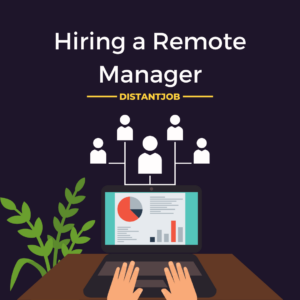At 5:55 Moscow time, the Russian President Vladimir Putin announced a “military operation” taking place in Ukraine´s eastern Donbas region during a televised speech.
The threat of war in Ukraine continues to grow and intensify, which means that many of your employees can be in the red zone needing assistance. If you´re currently dealing with employees living in Ukraine, here are some ways you can support them remotely.
What´s Going On In Ukraine?
Putin launched a military operation in Ukraine that led to explosions across the country. According to Ukrainian President Zelenskyy, Russia has carried out missile strikes on the country’s infrastructure and border guards. Russian troops crossed the border into Ukraine at the three-way junction between Ukraine, Russia, and Belarus.
Ukrainian officials stated that the initial wave of strikes involved cruise missiles, artillery, and airstrikes, which struck military infrastructure and border positions. More than 40 civilians were killed during these attacks. Additionally, Ukrainian authorities said that Russia had carried out more than 203 attacks and that conflict was already spreading throughout the entire territory.
Why is Russia Invading Ukraine? Key Points to Understand
To provide aid and support to your Ukrainian workforce and colleagues, it’s important that you understand the conflict. Besides what we already know about the situation and Russia’s attacks on the Ukrainian territory, this conflict is not recent.
How did the conflict even start? Ukraine was part of the soviet union until 1991 when the country became independent. And since that happened, a significant part of Ukrainians feel more Russian than Ukrainian, with their native language being Russian.
When Ukraine became independent, the country developed a close relationship with Europe and The United States. Furthermore, in 2014 Ukraine was about to become part of the European Union. But for Russia, this meant having the enemy next door.
However, Viktor Yanukovych, Ukraine’s president at the time, refused to sign the political association and free trade agreement with the European Union. Automatically thousands of Ukrainians took the streets; Kyiv was on fire, there were many deaths, and it ended with the president’s resignation.
Rebels backed by President Putin and Russia took over Crimea, annexing it to the country. And a month later, two regions in the east of Ukraine were proclaimed as independent territories.
These territories are not recognized by any country that is not an ally of Russia. After Crimea, the United States and the European Union economically sanctioned Russia, which Putin did not like.
The tensions between Ukraine and Russia continued. However, the conflict started in January of 2021, when Ukraine wanted to join NATO/OTAN (The North Atlantic Treaty Organization). Russia demanded an end to NATO’s eastward expansion, saying that a Ukrainian membership of the US-led military alliance was unacceptable.
Since then, it was a back and forth negotiation, and since Spring and Autumn of last year, Russia started to send troops near Ukraine’s border as a “training exercise.” That until today that Putin launched a military operation in Ukraine, threatening with consequences to other countries who interfere in the conflict.
5 Ways to Help Your Ukrainian Remote Employees
1. Focus on Their Wellbeing
The first thing you can do to help your employees affected by the Ukrainian-Russian conflict is asked them how they are doing. Make it clear that the most important thing right now is for them to be safe, so clear their schedule, and let them know they are in no obligation to attend any meetings or meet any deadlines.
You can also see if they need extra days, a paid leave, or more flexibility in terms of work hours. Every employee is dealing with this situation differently, so this is why communicating with them and knowing about their situation is the most important step to take.
Additionally, most of them might need extra money to go to a safer place, city, or even country if possible. So you can give them their salary in advance to help them have everything they need to stay safe.
2. Make Sure All The Team Is Informed
As a remote leader, part of your role is to keep your team together. It doesn’t matter if you have team members in other countries far away from Ukraine. To support your Ukraninan employees, you need to have everyone on the same page and understand the severity of the situation.
Many of your other employees outside of Ukraine barely understand the conflict. Not everyone is continually informed about global events. A way to help your Ukrainian team is to inform other employees about their situation. That way, they can empathize with them and equally support them.
3. Encourage Activism
Spread the word and stay informed! Helping your Ukrainian workforce is not only about sharing news or tweeting with #IStandWithUkraine hashtags. While this is helpful, becoming activists is what most Ukrainians currently need.
But, how to encourage activism in the workplace? Besides informing your team about what’s going on, it’s also about doing your part. Find places you can donate to or organizations that need help. These are some organizations accepting donations.
For military supplies:
Medical supplies:
For children affected by war:
Journalism:
Speak up for Ukraine in whatever country you are. It doesn’t matter if you’re in Latin America, Asia, the United States, or Australia. Ukraine needs the support of countries to stop this injustice. There are many ways you can make your government hear you, like making protests or even through social media!
4. Send Supplies
Currently, relocating to a different city is no longer a possibility for many Ukrainians. Even doing the most basic chores like going to the groceries or medicines can put them in a dangerous situation.
Another way to support your employees is by sending supplies to those who have it more challenging to go out for them. How to do this? With websites like Zakaz, you can send local supermarket deliveries to employees. Additionally, Ukraine’s national post services also have a comprehensive list of medicine, medical equipment, and hygiene products suppliers.
5. Offer Mental Health Services
Let your employees know you’re not alone. In critical situations like this one, checking up on them and encouraging other employees outside of Ukraine to do so can make them feel supported through these difficult times.
People who live in war zones are more likely to suffer from a mental illness like depression or PTSD. And while checking up right now could help them get through this, sometimes they need the help of professionals.
With technology, they can have remote sessions with counselors and other mental health professionals. Providing them with mental health days could also make them feel supported.
The Time to Act is Now!
While it keeps you informed, watching the news is not really helping anyone. Offering help, donating, becoming an activist, listening to your employee’s needs does. Keep in mind that some employees might not want to feel vulnerable and will avoid asking for help, so here’s when communicating and constantly checking up on them makes the difference. Stay open and available for your team during these critical times.



